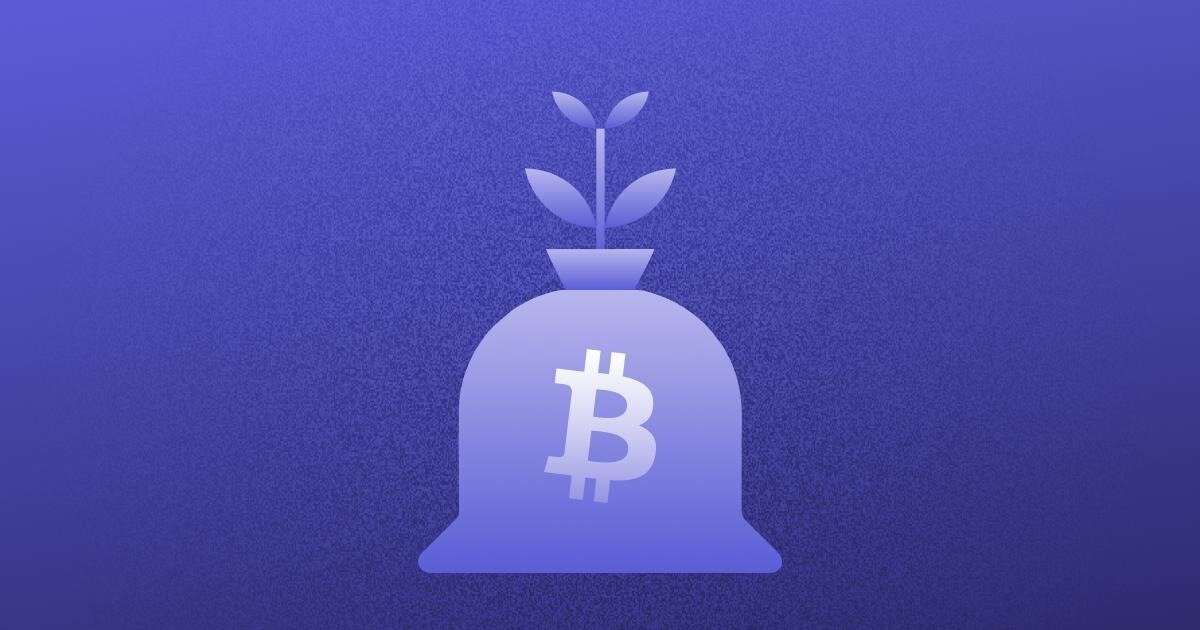Cryptocurrencies have become increasingly popular in recent years, attracting more and more traders and investors into the space looking to make huge returns. Unfortunately, with the rise in popularity, it has also attracted several bad actors leading to a surge in crypto scams. In this article, we'll explore the top five common crypto scams and provide tips on how to avoid them. Whether you're a beginner or a seasoned investor, this guide will help you identify potential scams and protect your investments.
What is a Cryptocurrency Scam?
A cryptocurrency scam is a type of scheme that is designed to steal your crypto assets or steal your fiat currency using crypto as a medium. While financial scams have been around for millennia, they have become increasingly more sophisticated since the proliferation of the internet. Given the highly technical nature of cryptocurrencies, scams in this space can be even more advanced. Because cryptocurrency transactions are immutable and irreversible, once a scammer gets hold of your crypto and sends it on the blockchain, it is very difficult to get it back. Knowing what to look out for and how to avoid scams has never been more important.
Common Types of Crypto Scams
Social Media Giveaways
It’s amazing how generous everyone seems to be on the likes of Twitter and Facebook. You only need to check the replies or comments under the posts of high profile accounts or celebrities like Elon Musk and you will likely find another influencer is doing a giveaway. All you have to do is send them some Bitcoin and they will double it and send them back, out of the goodness of their heart. Sounds too good to be true, right? Unfortunately, that’s because it probably is.
These types of social media giveaway scams have become all too common. Scammers have begun to create fake accounts and impersonate celebrities, influencers, or companies to attract unsuspecting victims. These accounts often look identical to the verified accounts you follow, but this is part of the trick. The hundreds of replies thanking said account for successfully receiving the giveaway are likely just fake accounts or bots deployed as part of the giveaway scam.
It is strongly recommended to ignore these giveaways. Even if you are tempted and believe that it could be legitimate, take a closer look at their profiles, followers and social media handles, and you’ll likely see signs they are fake.
Coinstash or any legitimate company doing a genuine giveaway will never ask you to send funds first.
Fake Mobile Apps
With the rise of mobile devices, scammers have started creating fake mobile apps that mimic legitimate crypto wallets and exchanges. These fake apps often look and feel like the real thing but are designed to steal your login credentials and access your crypto assets. Indeed, despite being malicious apps, some can rank highly in the Apple Store or Google Play Store, giving them an air of legitimacy.
To avoid falling victim to these scams, only download apps from official websites or trusted sources. Check the publisher’s credentials when using Apple Store or Google Play Store, as well as the app's reviews and ratings before downloading it. Be wary of any app that asks for your private keys or passwords.
You can download the official Coinstash App from Coinstash.com.au
Phishing
Phishing is a common tactic used by scammers to steal your login credentials and access your crypto assets. Phishing scams can take place across many mediums including - telephone, email, fake websites or messaging apps. In crypto, scammers commonly send emails or messages through messaging apps such as Telegram, impersonating representatives of a crypto exchange or wallet provider. The message will usually contain a link that will redirect to a fake website – similar to the original one – that will prompt you to log in. Once you enter your login credentials on the fake website, the scammers will steal your information and access your crypto assets.
To protect yourself from phishing scams, always double-check the website's URL before entering any login credentials. Avoid clicking on links in emails and private messages, and downloading attachments from people you don’t completely trust. And most importantly, never give out your wallet private keys or seed phrase.
Coinstash or any legitimate service provider will never ask for your password or private keys.
Romance Scams
Unfortunately, love can make you blind, and scammers know it.
Fraudsters are now using dating websites or apps, such as Tinder, to create fake profiles and lure victims into seemingly real romantic relationships. After gaining the victim’s trust, the scammer then turns the conversation to lucrative cryptocurrency investment opportunities and tries to convince the victim to invest. In reality, the scammer has no intention of investing the victim's money, and the victim ends up losing their investment and potentially their personal information as well.
There are many red flags you can look out for in relation to romance scams. Be wary of individuals who ask for financial help or bring up investment opportunities early in the relationship. Look out for profile pictures that seem fake, low-resolution, or could belong to someone else. Like the previous examples, always verify the identity of the person you are speaking with and be cautious about giving out your personal information.
Rug Pulls through ICOs
Finally, rug pulls are a relatively new but increasingly common crypto scam. Rug pulls most commonly happen through Initial Coin Offerings (ICOs), where projects claim to be launching a new token to support their project. These scams occur when a developer or team of developers creates a new cryptocurrency project, raises money from investors, and then disappears with the funds. They do this by creating fake hype around the project, attracting investors, and then pulling the rug out from underneath them.
Always do your own research before investing in a new cryptocurrency project. Look for projects that have a strong and active community, a well-defined roadmap and a transparent team with the expertise and experience to deliver on what they are promising. Be wary of any project that promises guaranteed high returns or absurdly high annual percentage yields (APYs) that far exceed the market average.
How to spot cryptocurrency scams
There are several common red flags that can help you spot a crypto scam. These include:
- Unsolicited messages or emails asking for your private keys or other sensitive information
- Promises of quick or guaranteed returns on investments
- New cryptocurrencies with little or no information available about them
- Social media profiles or websites with little or no information about the people or organisations behind them
- Exchanges or wallets that are not registered or licensed in your jurisdiction
Malicious actors have no shortage of techniques for targeting unsuspecting cryptocurrency users. To avoid the most common scams, you need to remain constantly vigilant and avoid engaging in any risky activities. As a general rule of thumb, remember that if an investment sounds too good to be true, it probably is.
Invest in crypto with confidence
Starting your crypto trading journey can be simple with an online exchange like Coinstash. Coinstash offers low fees, low spreads, a feature-packed app, and a secure platform for buying, selling, and holding crypto in Australia.
Not yet a client? Claim Your Sign-Up Bonus
Contents
What is a Cryptocurrency Scam?
Common Types of Crypto Scams
Romance Scams
How to spot cryptocurrency scams
Invest in crypto with confidence









